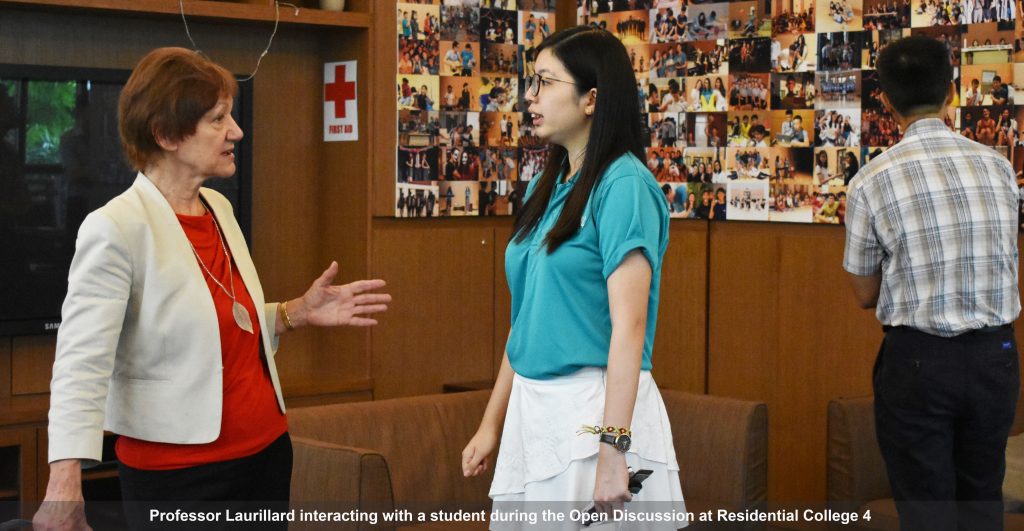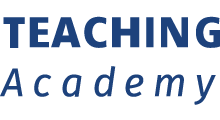- Home
- Publications
- Activities During Masterclass Week 2017
Activities During Masterclass Week 2017

During Masterclass Week 2017, besides meeting Senior Management and Academy Fellows, Professor Diana Laurillard also engaged in numerous discussions with different sections of the NUS community.
On 13 September 2018, the Academy and the Faculty of Engineering hosted an open discussion for faculty on “Enhancing Student Learning in the Digital World”. Facilitated by Academy Fellows Professor Seah Kar Heng, Assoc Prof Aaron Danner and Dr Tan Wee Kek, the session attracted faculty from all over NUS who were warmly welcomed by Engineering Vice-Dean, Assoc Prof Yung Lin Yue, Lanry. After sharing on a few blended learning design tools (FutureLearn, UCL’s Learning Designer and Course Resource Appraisal Modeller), Prof Laurillard discussed with participants the numerous “innovators’ problems” faced by faculty when leveraging on digital technologies. Rather than being merely content providers, faculty dedicated to student learning requi re suff icient skills and institutional support to be designers and authors who direct the learning experience co-created with digital medium experts. Digital technologies should not replace powerful mediums with something less effective but should instead be exploited to “bring” students to where they cannot go without the technology. Faculty have to carefully calibrate between appealing to students and eliciting real learning – in this respect, sometimes the simplest methods may still be the best.
On 15 September 2018, the Academy and Residential College 4 hosted an open discussion on “Optimising Digital Education in Living/Learning programmes”. Hall Master Assoc Prof Lakshminarayanan Samavedham, an Academy Fellow, and his team began by introducing all participants to the College’s Living/Learning programme with a tour of the residential college. A concern raised was whether digital technologies might interfere with, rather than boost the advantages of the proximity and interdisciplinary possibilities offered by the living/ learning programme. In the ensuing discussion, it was agreed that one of the challenges of interdisciplinary collaborative learning was the need for common linkages and a common vocabulary between collaborators versed in different disciplines. Prof Laurillard suggested that the affordances of digital discussions could be more fully utilised to complement such collaborative learning. For example, asynchronous digital discussions can give students more time to think. The digital medium also provides a “safe environment” in which those who are more apprehensive about face-to-face interactions can find their voice. When these preliminary stages are built in, face-to-face discussions begin from a different base due to the former digital interactions. In the case of interdisciplinary collaborations, it might also be fruitful to consider if the necessary numerous iterations of discussions and terms could be assisted by digital technologies so that mutual understandings and agreements could be derived more efficiently.
The last open discussion at Residential College 4 rounded off an eventful week of activities that included an Academy collaborat ion with the Minist ry of Education’s Educational Technology Division (ETD), resulting in Prof Laur illard’s MOE workshop on “Using the Conversational Framework for harnessing technology”. Fellows invited to the event enabled the Academy to gain understanding of the ETD’s Student Learning Space (SLS) Pedagogical Scaffold, “a design tool to guide teachers in deciding on teaching processes for active learning experiences with technology”, which incorporated the establishing of learning outcomes, lesson design and assessment.

